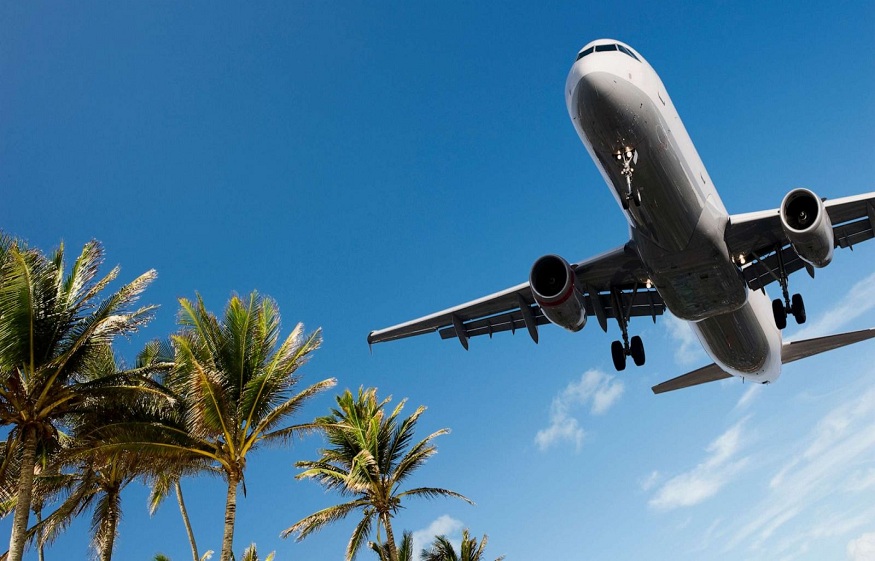10 Air Travel Tips – How to Avoid Flight Delays and Cancellations
Air travel can be stressful. Here, we share some helpful air travel tips to make the process more bearable.
Download movies and shows onto your phone or tablet the day before your flight to avoid having to rely on WiFi for entertainment; apps such as Netflix allow users to download content for offline viewing. You can also take advantage of great campaigns like Cathay Pacific’s Let’s Get Moving.
1. Check the weather
Weather can play an enormous part in air travel, often resulting in delays or cancellations during bad conditions (particularly winter). There are ways you can minimize these issues so that you reach your destination on time.
Begin your trip by consulting the weather forecast of both your destination and departure airports, as well as cities along your connecting route. Bad weather in any one city could have an immediate effect that compromises your entire journey. To minimize delays at the airport it may also help to book flights that leave early in the morning as these tend to be less affected by bad weather than later-departing flights; packing books, movies or music to keep yourself occupied during any wait times is also advised.
2. Check the status of your flight
Flight status can have a dramatic impact on your air travel plans. It can tell you the length of time it will take until your flight departs or whether it has been cancelled, and provide useful details on weather or other factors which could impede its journey. You can access this information either by visiting the website of your airline or downloading a tracking app for mobile phones.
If you are choosing a connecting flight, consider the possibility of delays before selecting it. A connection adds another level of complexity to your itinerary, limiting flexibility should there be delays; in such an instance, try asking the airline if they would endorse your ticket onto another carrier in order to save a cancellation fee; many times they will accommodate this request.
3. Check the status of your luggage
Airlines often lose luggage. This can be especially troublesome on flights with multiple legs, which may cause confusion among ground staff or electronic baggage tracking systems.
To avoid that scenario, Travelers United recommends booking direct or nonstop flights if possible; otherwise, make sure your luggage can easily be identified at the check-in counter, adding colorful tags or ribbons as decorations to help identify it quickly at baggage claim. In case the tag rips off accidentally during transit, consider keeping a copy of your itinerary handy inside so a baggage representative can quickly match up your claim to it.
4. Check the status of your boarding pass
Your boarding pass contains essential details about your flight number, travel dates and destinations as well as boarding gates and seat assignments for each leg of the journey. It will also indicate ticket classes as well as whether or not an upgrade may be available to you.
Staying organized by keeping this information at hand will allow you to plan ahead and adapt your itinerary as necessary. Furthermore, having this data at your fingertips may also assist the airline in identifying your eligibility for early check-in or priority boarding.
Be sure to download any entertainment you might need for the flight and bring a water bottle with you if possible, to save yourself from paying overpriced airport bottled water prices. Also let the airline know of any special dietary needs or restrictions so they can accommodate them better during flight – the earlier you check-in the greater your chances are of securing either an aisle or window seat!
5. Check the status of your passport
If you’re traveling internationally, make sure that your passport is up-to-date. Many countries require it be valid at least six months post travel dates in order to enter their territory, otherwise they will deny you entry into their nation.
Checking your passport application status online is now simpler than ever, all it takes is entering your last name, date of birth and four digits from your Social Security Number to gain insight into its progress.
If you are applying for or renewing your passport, it is crucial that you check in regularly with the State Department to see how long it will take them to process. With PhotoAiD’s secure home passport photography option and proven reliability among Forbes, Glamour, and National Geographic audiences – PhotoAiD may help speed up this process considerably.
8. Check the status of your ticket
Your ticket status is an integral component of a successful air travel experience. On the day of and hours before departure, check your airline’s website to see if your flight has been delayed or canceled – most will rebook you on an earlier flight without incurring cancellation fees; otherwise try finding another airline with seats who might endorse the original carrier’s ticket; this could save both cancellation penalties and fare increases.
9. Check the status of your baggage
Even though most travelers’ checked bags reach their final destinations without issue, sometimes luggage is delayed or lost during transit. With proper planning and preparation, however, you can lower the chances of this occurring to you.
Make sure your bag arrives first at baggage claim by asking an airline agent for a priority tag when checking it in. These tags are given out to frequent fliers with certain levels of elite status or those purchasing business or first-class tickets.
Fixing a tracking device like an Apple AirTag or Tile can help you quickly locate lost luggage. Furthermore, consider booking nonstop flights if possible to minimize how often your bags need to transfer. Finally, bring essential trip necessities as well as expensive items with you in your carry-on luggage.
10. Check the status of your boarding pass
A boarding pass is an integral component of travel documentation, containing important details about your flight such as gate, boarding time and seating assignment. Furthermore, it serves as proof of ticket purchase or even frequent-flier status in certain instances.
Some boarding passes feature an indication known as “SSSS,” or Secondary Security Screening Selection, that indicates you will undergo additional security screening at the airport. This code signifies you have been preselected to undergo additional screening measures during travel.
Carefully review your boarding pass to identify any inaccuracies that could interfere with your travel plans, such as flying with a codeshare flight (known as an interline agreement), purchasing multiple one-way tickets and/or using a frequent flyer program with different rules than your own. Such mistakes could have serious repercussions – for instance being denied boarding or detained by security.



